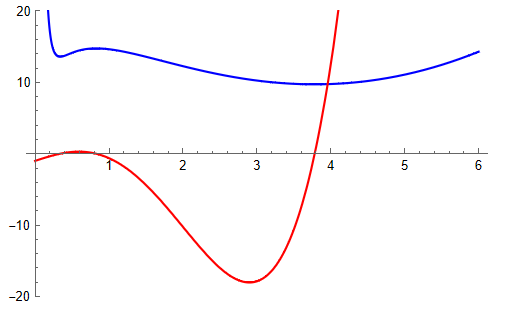Let $a>b>0$.
Suppose we want to minimize $$ f(x)=(x-a)^2+(1/x-b)^2, $$ over $x>0$.
Equating $f'(x)=0$ leads to the quartic equation $$ g(x)=x^4-ax^3+bx-1=0. \tag{1} $$
Question:
Is the smallest positive real root of equation $(1)$ always the minimizer of $f$?
Since $g(0)<0$ and $\lim_{x \to -\infty} g(x)=\lim_{x \to \infty} g(x)=\infty$, there always exist two real solutions, one positive and one negative.
Thus, there can be either one positive root (e.g. when $a=b=1$), or three positive roots (e.g. $a=3,b=4$).
In some numerical examples I tried, the smallest (positive) root was indeed the minimizer, and I wonder whether this is always the case.

